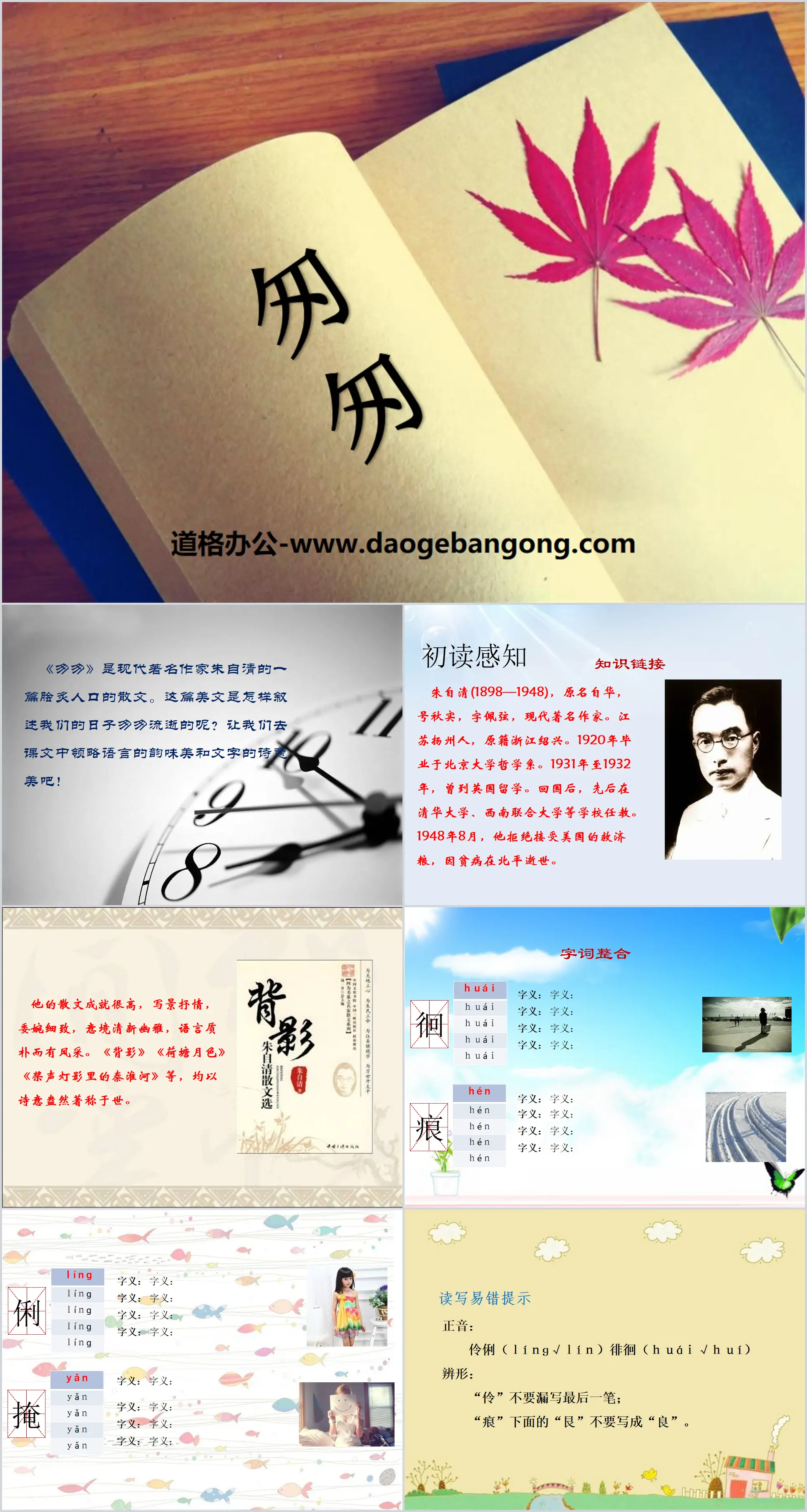"Hurry" PPT Simple campus recruitment activity planning plan summary enterprise and institution recruitment publicity lecture PPT template is a general PPT template for business post competition provided by the manuscript PPT, simple campus recruitment activity planning plan summary enterprise and institution recruitment promotion Lecture PPT template, you can edit and modify the text and pictures in the source file by downloading the source file. If you want more exquisite business PPT templates, you can come to grid resource. Doug resource PPT, massive PPT template slide material download, we only make high-quality PPT templates!
| 文件名 如何下载使用 | 下载次数 | Download Points | 下载地址 |
|---|---|---|---|
| "Hurry" PPT | 4200次 | 0.00 | Free Download |
Tips: If you open the template and feel that it is not suitable for all your needs, you can search for related content "Hurry" PPT is enough.
How to use the Windows system template
Directly decompress the file and use it with office or wps
How to use the Mac system template
Directly decompress the file and use it Office or wps can be used
Related reading
For more detailed PPT-related tutorials and font tutorials, you can view: Click to see
How to create a high-quality technological sense PPT? 4 ways to share the bottom of the box
Notice
Do not download in WeChat, Zhihu, QQ, built-in browsers, please use mobile browsers to download! If you are a mobile phone user, please download it on your computer!
1. The manuscript PPT is only for study and reference, please delete it 24 hours after downloading.
2. If the resource involves your legitimate rights and interests, delete it immediately.
3. Contact information: service@daogebangong.com
"Hurry" PPT, due to usage restrictions, it is only for personal study and reference use. For commercial use, please go to the relevant official website for authorization.
(Personal non-commercial use refers to the use of this font to complete the display of personal works, including but not limited to the design of personal papers, resumes, etc.)

Related reading
For more detailed PPT-related tutorials and font tutorials, you can view:Please click to see










Authoritative PPT Summary
"Hurry" PPT
Part One: First Reading Perception
Knowledge link
Zhu Ziqing (1898-1948), formerly known as Zihua, nicknamed Qiushi, and styled as Peixian, is a famous modern writer. A native of Yangzhou, Jiangsu, originally from Shaoxing, Zhejiang. Graduated from the Philosophy Department of Peking University in 1920. From 1931 to 1932, he studied in England. After returning to China, he successively taught at Tsinghua University, Southwest Associated University and other schools. In August 1948, he refused to accept relief food from the United States and died in Peiping due to poverty and illness.
His prose has a high level of achievement. He describes scenes lyrically, euphemistically and meticulously, his artistic conception is fresh and elegant, and his language is simple and elegant. "Back View", "Moonlight over the Lotus Pond", "Qinhuai River in the Sound of Oars and Shadows of Lights", etc. are all famous for their poetic poetry.
word integration
irresolute
Literal meaning: to wander.
Group word: wander (wander)
Character identification: Hui (go home) (come back) (review) (return)
Sentence: He was lingering outside the door, thoughtfully.
mark
Literal meaning: trace.
Group words: marks (scars) (tear marks) (knife marks) (trace)
Character identification: disease (patient) (disease) (sickness) (sickness)
Sentence: The snow is completely white, without a trace.
Error-prone tips for reading and writing
Correct pronunciation:
Clever (lín�√llín) wandering (huái√hhuí)
Distinguish the shape:
Don’t miss the last word of “Ling”;
Do not write "gen" under "hen" as "Liang".
Word Definition - Learn it
Move: move, move.
Gossamer: The thread spun by spiders and others that floats in the air.
Naked: describes being naked without clothes.
Hurry PPT, part 2: overall perception
Read the text and try to fill it in.
"Hurry" revolves around the word "( )" and delicately depicts ( ), expressing the author's ( ) about the passage of time.
special statement
As Zhu Ziqing's representative work, this article has beautiful language. Find sentences that you think are beautiful and read them emotionally.
1. The swallows have gone, but they will come again; the willows have withered, but they will be green again; the peach blossoms have withered, but they will bloom again.
2. The sun has feet, and it moves away gently and quietly; I also follow it in a daze.
3. In the evening, as I lie in bed, he will stride over my body, fly away from my feet, in his agile way.
4. The past days are like light smoke, blown away by the breeze, like mist, evaporated by the early sun; what traces do I leave behind?
Paragraph to the effect
Briefly describe the content of each part:
Part One (1) The days are gone forever.
Part Two (2-4) The days fly by and make people think.
The third part (5) echoes the exclamation at the beginning.
PPT in a hurry, the third part: read the text again
Read the text and think about the questions.
1. In paragraph ①, the author uses a series of questions. What is the expressive effect?
A series of questions, with no answers, but the answers are hidden in them. The purpose is to arouse people's deep thoughts, arouse people's awareness of cherishing time, and express the author's helplessness about the passing of time and his deep regret and nostalgia for the past days.
Tips: There are more than ten questions used throughout the article.
2. What rhetorical techniques does the author use in paragraph 2? What are the pros of writing in this manner?
Here, the author uses extremely novel and ingenious metaphors to compare his more than 8,000 days in the past to water droplets on the tip of a very small needle, and the flow of time to the vast sea. These two vivid metaphors vividly express the author's helpless melancholy.
3. How does paragraph ③ present the image of "rush" of time perceptibly?
The author first personifies the sun, the symbol of time. As the sun "moves", the author also "rotates" in a "bewilderment". Then, the author uses a series of parallel sentences to show the flight of time. Eating, washing hands, and meditating are details of people's daily life, but the author keenly sees the flow of time. When he tries to retain it, it "crosses over" smartly, "flyes away" lightly, and "flys away" quietly. "Slip away" and "flash past" quickly. The author uses lively words to visibly present the "rush" image of time, and we seem to hear the light and lively footsteps of time.
4. After reading the entire article, please tell me how the article describes the passing of days?
At the beginning of the text, parallelism is used to depict the spring scene to hint at the traces of the passage of time, and then lead to the question: "Why are our days gone forever?" This sentence seems to be asking, but it actually expresses the author's concern for the passage of time and the irreversibility of it. Helplessness and deep nostalgia for the days gone by. Then, more than 8,000 days of writing about myself passed away silently, expressing the author's infinite emotion. Then, the author uses a delicate and unique writing style and uses a variety of rhetorical techniques to specifically describe how days come and go and are fleeting. Finally, the author writes about his thoughts on life, asks himself, and deeply expresses the author's helplessness and regret for the passage of time.
PPT in a hurry, part 4: intensive reading of the text
Tell me how "I" feel the rush of time and how "I" feel.
Someone stole them: who was it? Where did they hide them? They escaped on their own; where are they now?
——Use a guessing tone to ridicule, causing people to think about the passage of time.
Counting in silence, more than eight thousand days have slipped from my hands.
——Time passes silently, unconsciously, and irrevocably.
Thus--when I wash my hands, the days pass by the sink; when I eat, the days pass by the rice bowl; when I am silent, the days pass by before my gazeful eyes.
——Use a series of parallel sentences to describe the details of people's daily life, and use delicate and unique strokes to show how days pass by inadvertently.
I hid my face and sighed. But the shadow of the new days began to flash through the sigh again.
——Sighing itself is also a waste of time, warning us to cherish time.
What can I do in this world of thousands of households in the days when I am escaping like flying away?
——Expresses the author's helplessness about wasting time.
Have I ever left traces like a gossamer?
——Facing the passage of time, "I" reflected.
I came to this world naked, and will I go back naked in a blink of an eye? But I can’t help it, why do I have to go through this life in vain?
——Use rhetorical questions to express the author’s thoughts and feelings that he is not willing to waste his life in vain.
Quick PPT, Part 5: Practice in class
1. Pronounce the blue words in the following words.
suddenly ( ) majestic ( ) drinking stream ( )
Muffled thunder ( ) Bursting ( ) Confusing ( )
Snoring ( ) Thunder ( ) Whale ( )
2. Compare and form words.
迿( ) jun( ) jin( ) ze( )
spell( ) even( ) common( ) select( )
3. Complete the following words.
( ) Sound ( ) Language ( ) Light ( ) Light ( ) Ting ( ) Jun
Qi( )shan( ) flutter( )mi( ) flower( )jin( )
Staring ( )( ) ( )( ) No existence Surging ( )( )
Keywords: Free download of the Chinese PPT courseware for the first volume of the sixth grade of the E-education edition, PPT download in a hurry, .PPT format;
For more information about the "Hurry" PPT courseware, please click the "Hurry" ppt tab.
"That Year in a Hurry" classmates photo album PPT template with old camera photo background:
This is a set of old camera photo backgrounds, a PPT template for the classmate photo album with the theme of "The Year in a Hurry", a total of 12 photos; the slide template cover uses an old SLR camera and old photos with a sense of time as the background image. Paired with white thin line PPT animation, it shows that in that year in a hurry, I...
"Hurry" PPT teaching courseware:
"Hurry" PPT teaching courseware Part 1: Information treasure bag About the author Zhu Ziqing, formerly known as Zihua, also known as Peixian and Qiushi, is a modern essayist and poet. Representative works: "Green", "Spring", "Back View", "Qinhuai River in the Sound of Oars and Shadows of Lights", "Moonlight over the Lotus Pond"...
"Hurry" PPT download:
"Hurry" PPT Download Part One Content: New Lesson Introduction Author Information Zhu Ziqing, formerly known as Zihua, with the courtesy name Peixian and Qiushi. Chinese modern poet and prose writer. Originally from Shaoxing, Zhejiang. Graduated from Peking University and served as professor and department head of the Chinese Department of Tsinghua University. Writing style..